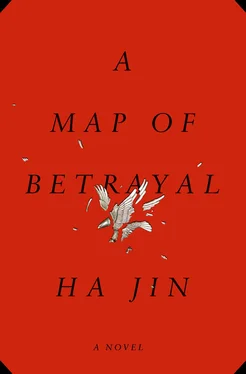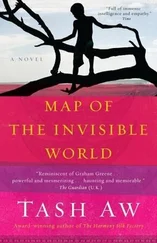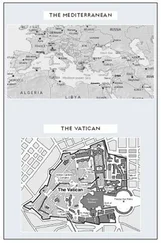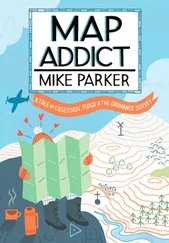At the radio station there was a Filipino man who spoke Japanese fluently and a Vietnamese man who knew French well. Both of them were formal and polite at work but turned foulmouthed like the Americans as soon as they called it a day. They had their families with them, yet once in a while they’d go to nightclubs to see local girls dance. They would wave dollar bills and packets of chewing gum at the performers while crying, “Shake it! Shake it!” Gary went with them once but regretted having spent ten dollars in less than two hours. He blamed himself for such extravagance as he remembered the rustic life his parents and wife had been living back home. He wouldn’t go to a place like that again.
As the only Chinese translator here, he handled all the Chinese-language publications and could follow events in China. Time and again the Communists declared they would liberate Taiwan in the near future, but their plan for the liberation was thwarted by the lost battle on Jinmen, an island about six miles east of Amoy. The previous summer the People’s Liberation Army had launched an attack with three regiments — more than nine thousand men in all, assuming that the Nationalist troops hadn’t been able to build their defenses on the island yet. Under cover of darkness the assaulting force landed on a vast beach, but right after they arrived, the tide began falling away and made it impossible for the three hundred boats to go back to fetch reinforcements and provisions. As a result, the landed soldiers, some having seen the ocean for the first time, had no choice but to charge ahead at the defending positions. When it was daylight all the attackers were fully exposed on the beach, so the Nationalist army shelled them with artillery and raked them with machine guns. Then bombers came and destroyed all the stranded boats, a few of which were even loaded with live pigs and chickens, jars of rice wine, crates of liquor, and boxes of cash for the expected victory celebration.
Before dusk, the invading troops were routed, and some fled to the hills, but they were either killed or captured. All told, about three thousand men were taken prisoner. The lost battle was a huge blow to the Communists’ plan to cross Taiwan Strait, and Mao had no option but to put “the liberation of Taiwan” on hold for the time being. If they attacked any island again, they’d have to be able to crush the defenders with overwhelming force. Gary realized that so long as the People’s Liberation Army was preparing to capture Taiwan, his superiors might not call him back, because they would need military intelligence from him. He dreaded getting mired in Okinawa for good.
Through reading reports, interviews, and private talks, Gary could see that the Americans didn’t trust Chiang Kai-shek. They believed that the Nationalist government and army were too corrupt to have any future. Just a few years back the United States had granted them two billion dollars in aid, assuming they’d be able to hold the Communists in check, if not to root them out. But all the money vanished in the fire and smoke of lost battles and in some top officials’ pockets, and the whole of China went Red in just four years. It was whispered that the White House had been seriously looking for someone in the Nationalist army to replace Chiang. Gary could also see that the Americans had no plan for defending Taiwan at all. This meant that on their own the Nationalist forces could hardly defend the island state, so mainland China should attack it as soon as possible.
In addition, the native Taiwanese didn’t like the Nationalist regime, which had been ruling the island with terror and blood. Thousands of educated natives had been rounded up and killed; many disappeared without a trace. Even some mainlanders who’d fled to Taiwan resented the brutality. The previous summer hundreds of middle schoolers from Shandong, to whom the Nationalist government had promised uninterrupted education, had been forced to join its army; a number of student representatives had protested to the officers but only got bayoneted. Later the military court tried the activists involved in resisting the coerced service — two middle school principals and five students were sentenced to death. The deaths of those men and teenage boys from his home province made Gary hate the Nationalist regime all the more.
Everything in Taiwan indicated that the government was quite shaky and could be toppled easily. Gary wanted to see his country unified soon so it would be more powerful in fighting imperialism and colonialism. He was excited by the tidbits of intelligence he had gathered, considering them valuable to the mainland, and he even wrote a long summary of what he’d found, a kind of analysis of the current situation in East Asia, but since he was still altogether isolated, he had no idea where to send the intelligence. He felt frustrated and even wondered if his comrades, consumed with building the new country, had forgotten him.
In the meantime, the storm of war was gathering on the Korean Peninsula. It was reported that Kim Il Sung had claimed he was going to overthrow the U.S.-backed puppet government in Seoul, but no one took his threat seriously. Then, in late June, he launched a full-scale attack with ten divisions, all equipped with Russian-made weapons. Seoul fell in three days. The South Korean forces and the U.S. troops couldn’t stop the invading army and began retreating south toward Pusan. Kim Il Sung proclaimed that his soldiers, “Stalin’s warriors,” would drive the enemies all down into the Pacific in a matter of weeks. But his army soon became battle-fatigued and depleted, unable to break the U.S. final defense line — their T-34 tanks’ rubber-clad wheels were melted by napalm, their troops were slaughtered by American bombers that came from the ocean, and within two months they’d lost more than fifty thousand men. Although they managed to surround Pusan in late August, they couldn’t finish the battle; their offense bogged down.
Then, in mid-September, General MacArthur succeeded in landing eighteen thousand marines at Inchon. From there the American troops proceeded to cut the North Koreans’ supply lines and attack them from the rear. The Communist army crumbled instantly and had to retreat helter-skelter. MacArthur declared that the U.S. forces would go after them and wipe them out wherever they were. In no time Seoul was taken back, and all Kim’s soldiers were fleeing north. Still, the U.S. army wouldn’t stop pursuing them. It looked like the war would soon reach the bank of the Yalu. In response to the crisis, Zhou Enlai, the Chinese premier, told K. M. Panikkar, the Indian ambassador to Beijing: “China will not sit back and watch if the U.S. army crosses the Thirty-Eighth Parallel to invade North Korea.” His warning was dismissed by the White House. Indeed, how could a weak, war-battered China confront a global superpower? Who wouldn’t take Zhou’s words for a mere bluff?
But Gary understood how the Chinese Communist leaders’ minds worked — in general, they wouldn’t have said anything they couldn’t back up with force. He didn’t want to see a war break out between the United States and the new China, which was only a year old and couldn’t afford such a confrontation. It was time to keep peace, reconstruct the country, and let the populace recover from the destruction of the civil war. Yet the two countries seemed unable to understand each other, heading toward a frontal clash. Two days after the Korean War broke out, President Truman had declared that he’d decided to dispatch the Seventh Fleet to blockade Taiwan Strait. To Gary, as well as to most Chinese, this was a blatant affront, because evidently the United States dared not confront the Soviet Union and vented its spleen on China instead. The American warships steaming toward Taiwan Strait shattered China’s plan for imminent national unification, since there was no way it could fight the powerful U.S. navy. Outraged, a Chinese delegate at the UN asked the world: “Can you imagine that because Mexico has a civil war, the United Kingdom is entitled to seize Florida?” Zhou Enlai also announced that Truman’s declaration and the U.S. navy’s blockade constituted an armed invasion of China’s territory. But all the announcements and warnings were ignored by the West.
Читать дальше











